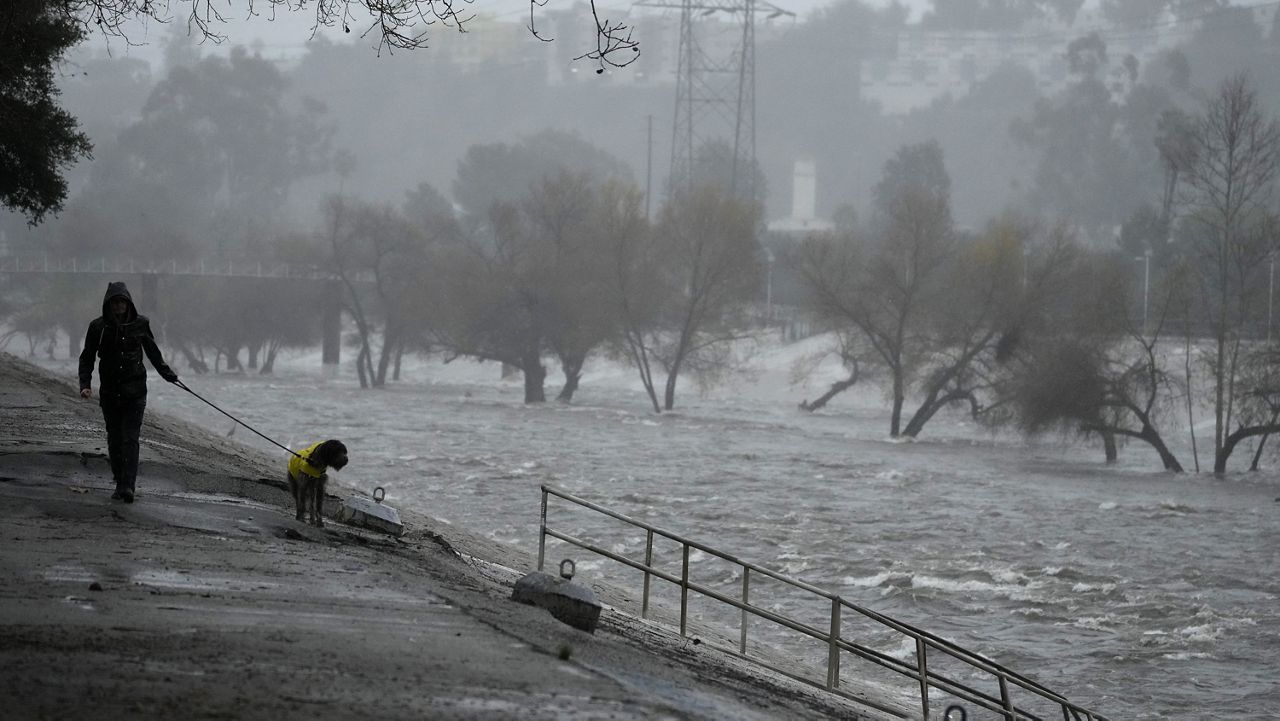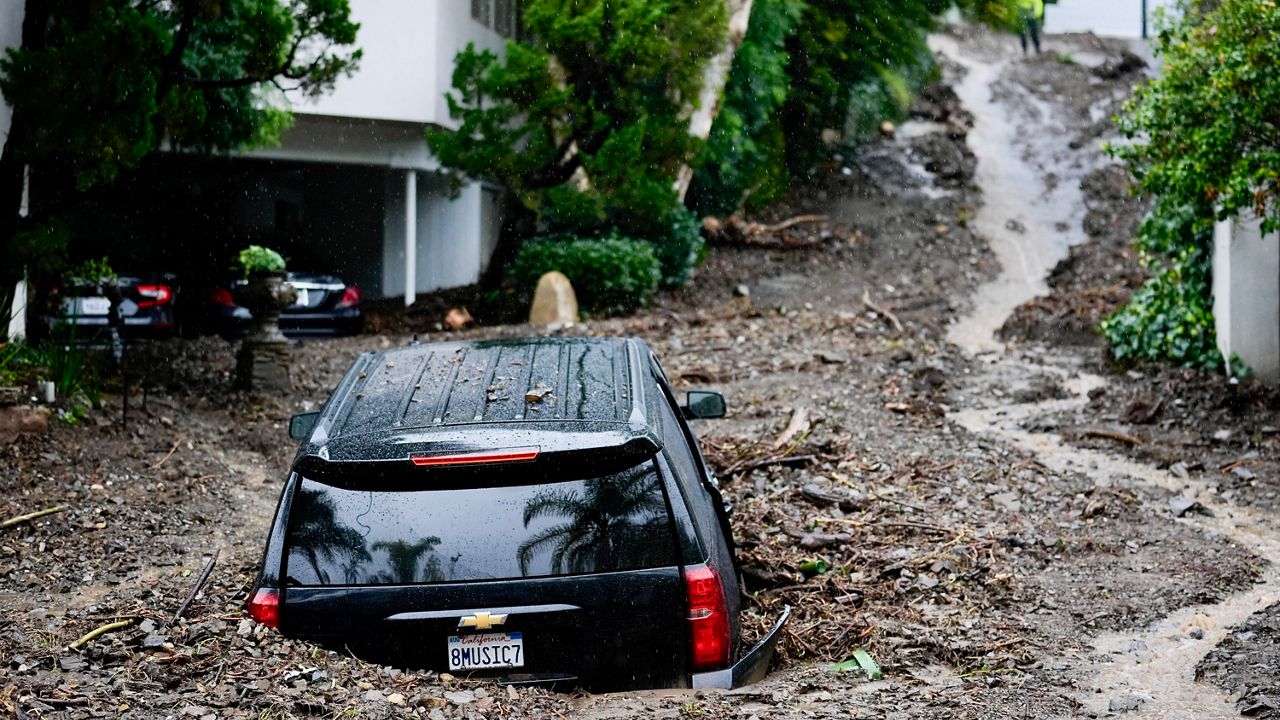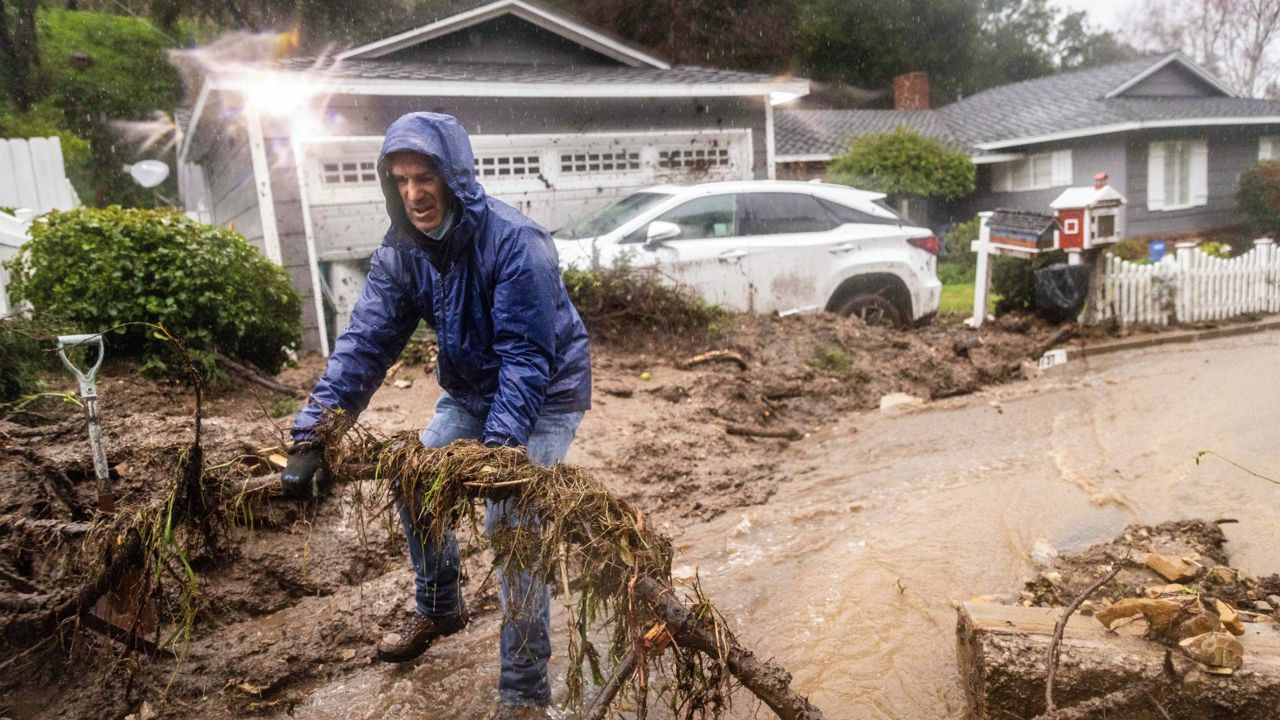LOS ANGELES — The slow-moving atmospheric river still battering California on Tuesday unleashed record rainfall, triple-digit winds and hundreds of mudslides.
Here is the historic storm by the numbers:
Downtown Los Angeles
In four days, downtown Los Angeles got soaked by more than 8 inches of rain — more than half of the 14.25 inches it normally gets per year.
That is according to the National Weather Service’s Los Angeles office, which has records dating back to 1877.
February tends to be one of the city’s rainier months. Only seven days into the month, it is already the 13th wettest February on record.
Rainiest spots
Downtown Los Angeles wasn’t the only spot that received colossal amounts of rain. About 12 miles to the northwest, the hills of Bel Air got more than a foot — 13.04 inches — between Sunday and late Wednesday morning.
Several other locations in Los Angeles County received more than a foot of rain during the four-day span, including Sepulveda Canyon, Topanga Canyon, Cogswell Dam and Woodland Hills.
Wind
A gust of 102 mph was recorded Sunday at Pablo Point, at an elevation of 932 feet, in Marin County, just north of San Francisco.
While just missing the December 1995 record of 103 mph at Angel Island, “102 is very, very impressive,” said meteorologist Nicole Sarment at the National Weather Service’s Bay Area office.
The top 10 strongest gusts — between 102 and 89 mph — recorded at the height of the weekend’s winds were all in Marin and nearby Santa Clara County, the weather service said. Gusts above 80 mph were also recorded in Napa and Monterey counties.
Other wind readings Sunday included 77 mph at the San Francisco airport, 61 mph at the Oakland airport and 59 mph at the San Jose airport.
Mudslides
By Wednesday, crews had responded to 520 mudslides across Los Angeles, according to the mayor’s office. The mudslides closed roads across the city, smashed into homes and prompted evacuation orders in canyon neighborhoods with burn scars from recent wildfires.
Emergency crews also responded to more than 400 fallen trees.
Those numbers could rise because even though rain was diminishing, already sodden hillsides still threatened to give way.
So far, 12 buildings have been deemed uninhabitable, the city said. And at least 30 were yellow-tagged, meaning residents could go back to get their belongings but could not stay because of the damage. Inspections were ongoing at dozens more properties.
Water
All the rain brought one silver lining: Helping to boost the state’s often-strapped water supply. More than 7 billion gallons of storm water in Los Angeles County were captured for groundwater and local supplies, the mayor’s office said. Just two years ago, nearly all of California was plagued by a devastating drought that strained resources and forced water cutbacks.








